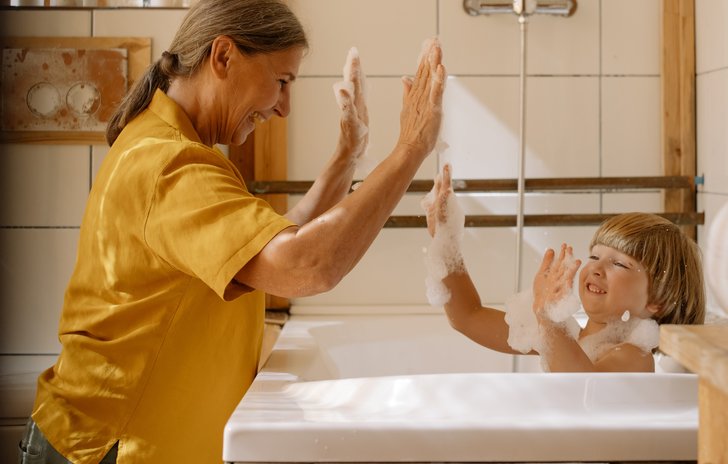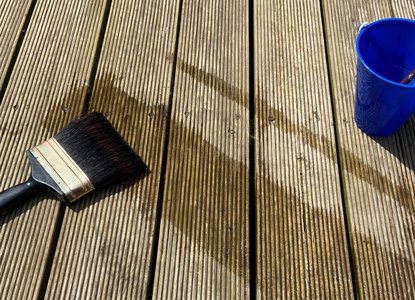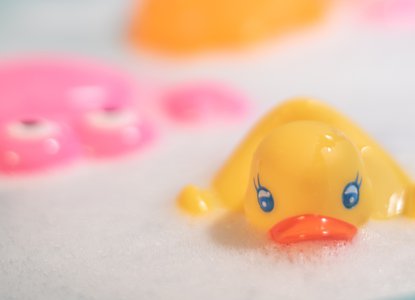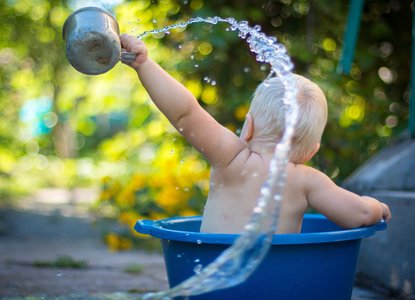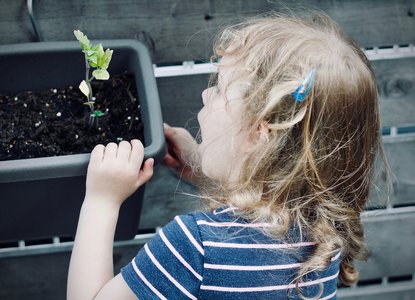You might be surprised to realise how much children can learn as they play with water.
Water play supports children's understanding of mathematical and scientific concepts, it supports their strength and coordination and their problem solving and thinking skills. Their language skills will develop too, as they talk about and question what is happening, and learn new words.
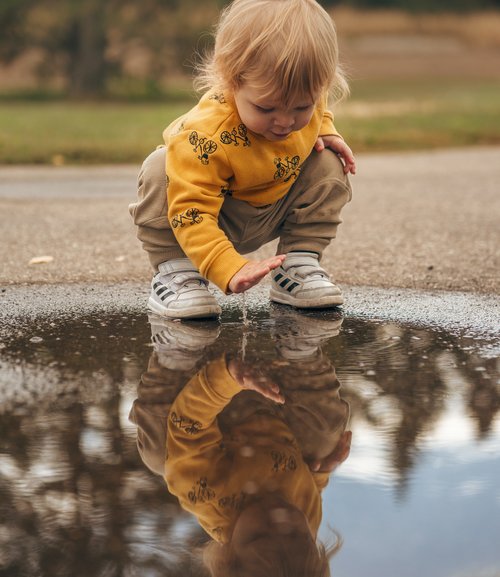
- Young children are curious about water, and keen to explore it.
- Bath time is a great opportunity for water play, or fill a washing up bowl or bucket with water to explore outside.
- Let children help with using water for a purpose too, for example, washing up, washing fruits and vegetables and watering plants.
- The sensory aspect of water play means it can have a calming effect on children, as they become absorbed in play.
- Ensure children are always supervised while playing with or in water.
Water activities:
Provide children with a range of containers and waterproof toys and they will create their own play and investigations in water. For example, provide; plastic bowls, cups, jugs, bottles, funnels, colanders, cloths and sponges and plastic animals, people or fish.
Find ideas below to extend their play further.
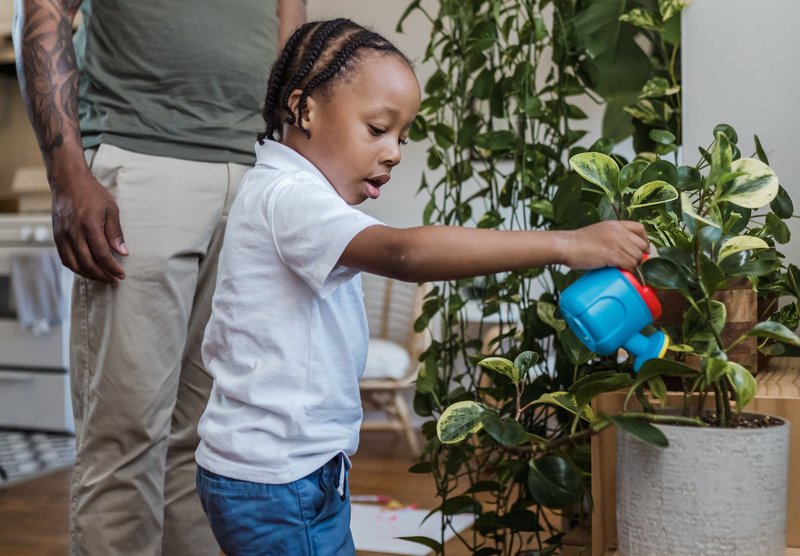
Noisy water
What different noises can you make in water?
This is a great activity to get your little ones taking part in sensory play while listening to and copying the sounds they hear.
You will need objects to drop in the water such as, plastic toys, a straw, dry pasta, pebbles, or paper
- Take it in turns to drop different things in the water, and notice what happens when they go in.
- Try splashing to make ripples or using a straw to blow bubbles
- Try clapping hands or tapping, above and beneath the water.
- Listen to the noises you make and have a go at repeating them with your child: splish, splash, plop, bubble and slurp.
Ice play
Explore water as it changes from a solid to a liquid.
- Freeze ice cubes, a container of water or a balloon.
- You could freeze a toy inside the ice
- Let children explore and investigate the ice as it melts.
- On a cold night you could put a tray of water outside to see if it freezes.
- Involve children in the whole process of freezing and melting so they notice and begin to understand what is happening.
Floating and sinking
Investigate which materials float and sink in water.
- Provide children with a range of objects from around the house and garden. For example; metal spoon, wooden spoon, ball, apple, toy, stick, stone, sponge, paper, plastic cup,
- Encourage your child to predict which items will float and which will sink before you test them together in the water.
- Talk together about what happens to the objects.
Moving water
Use household tools to explore different ways of making water move.
- Jugs, cups and scoops for pouring and tipping water are a perfect starting point.
- Add a funnel and a colander, or a plastic bottle with holes poked up the side to explore how the water comes out.
- Tubes and pipes are a great addition, or a tray to pour water down/over the edge of.
- Plastic syringes (save old ones from children's medicine) and squeezy bottles can be fun to explore too!
Imaginative play
Pretend play helps children understand the world around them.
- Give baby a bath - bath a plastic doll
- Wash doll clothes and hang them up to dry
- Do the washing up - maybe they can really help you wash up after a meal or baking activity, or they can pretend to wash up their own play cooking items.
- Wash some toys - maybe you could create a mini- car wash!
- Small world play - provide animals and people to play with in the water - what could you use to make a boat?
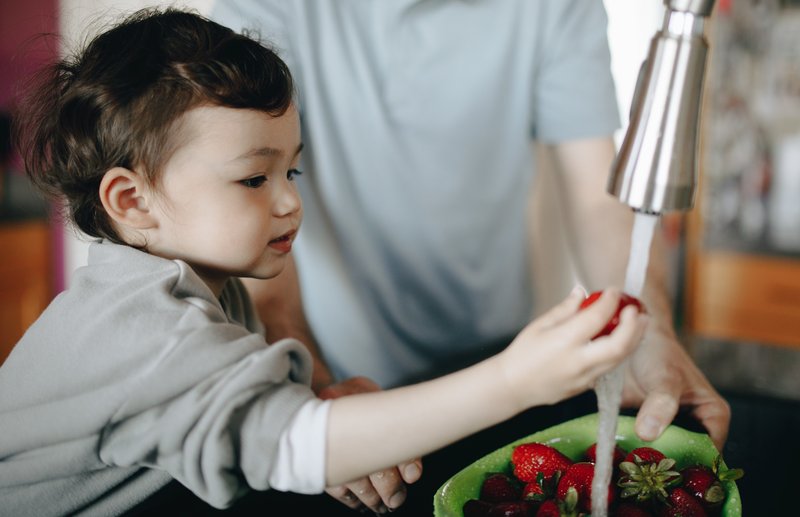
Good to know
When children learn new words alongside real experiences, it supports them to understand and remember them.
